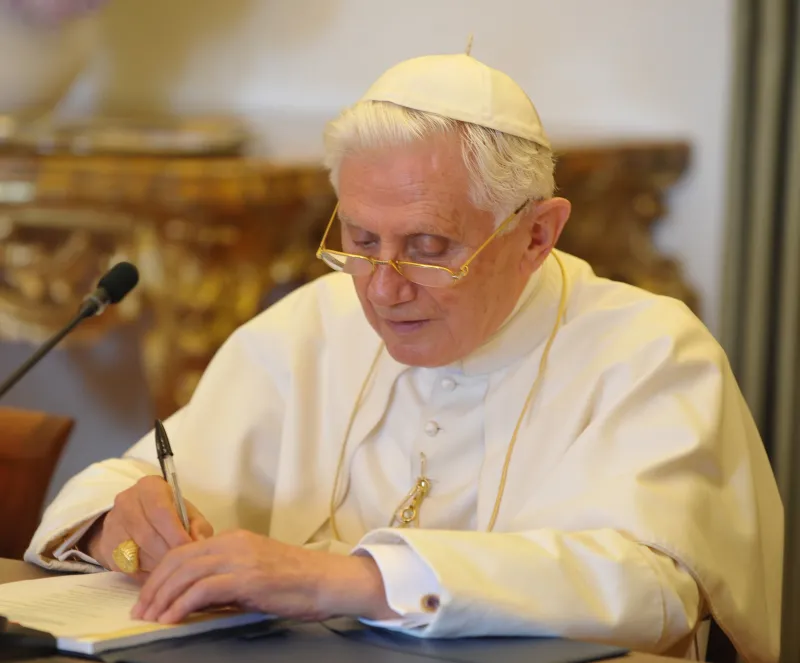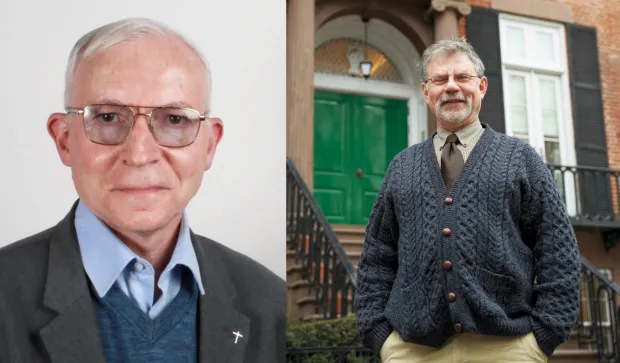
CNA Newsroom, Oct 7, 2022 / 03:01 am (CNA).
A French Jesuit and an American legal scholar were named the recipients of this year’s Ratzinger prize on Friday.
The Joseph Ratzinger-Benedict XVI Foundation announced on Oct. 7 that Father Michel Fédou and Joseph H. H. Weiler will receive the prize from Pope Francis on Dec. 1.
The Ratzinger Prize was launched in 2011 to recognize scholars whose work demonstrates a meaningful contribution to theology in the spirit of Cardinal Joseph Ratzinger, the Bavarian theologian who became Benedict XVI.

Father Fédou has been teaching Dogmatic Theology and Patristics at Centre Sèvres, a Jesuit institution in Paris, since 1987. He is a member of several theological organizations and commissions regarding ecumenical dialogue with Lutherans and Orthodox Christians, according to a Vatican communiqué.
The 69-year-old native of Lyon (France) is the author of several works, mainly about Patristics and Christology.
Famous for his role in defense of the display of crucifixes in public schools before the European Court of Human Rights, Professor Joseph H. H. Weiler is a legal scholar at many universities in the US and the UK, including at Harvard and New York University, as well as in other places.
The 71-year-old native of Johannesburg (South Africa) was the president of the European University Institute of Florence and is the author of many works about constitutional and international law as well as human rights.
In his book “A Christian Europe: An Exploratory Essay,” the Jewish scholar coined the term Christophobia, a phenomenon papal biographer George Weigel has written about extensively.
Last year’s winners of the Ratzinger Prize were Hanna-Barbara Gerl-Falkovitz and Ludger Schwienhorst-Schönberger.
Candidates for the prize are chosen by the scientific committee of the Ratzinger Foundation and presented to the pope, who approves the winners.
The Ratzinger Prize has been awarded yearly since 2011 to two or three scholars.
The scientific committee members are appointed by the pope.
Members until recently have been Cardinals Angelo Amato (Prefect Emeritus of the Congregation for the Causes of Saints), Kurt Koch (President of the Pontifical Council for Promoting Christian Unity), Luis Ladaria (Prefect of the Congregation for the Doctrine of the Faith), Gianfranco Ravasi (President of the Pontifical Council for Culture), Bishop Rudolf Voderholzer of Regensburg (Bavaria, Germany) and President of Pope Benedict XVI Institute. Archbishop Salvatore Fisichella stood in for Cardinal Amato.
If you value the news and views Catholic World Report provides, please consider donating to support our efforts. Your contribution will help us continue to make CWR available to all readers worldwide for free, without a subscription. Thank you for your generosity!
Click here for more information on donating to CWR. Click here to sign up for our newsletter.






Hearty congratulations to the Reverend Michel Fédou and Joseph H. H. Weiler.